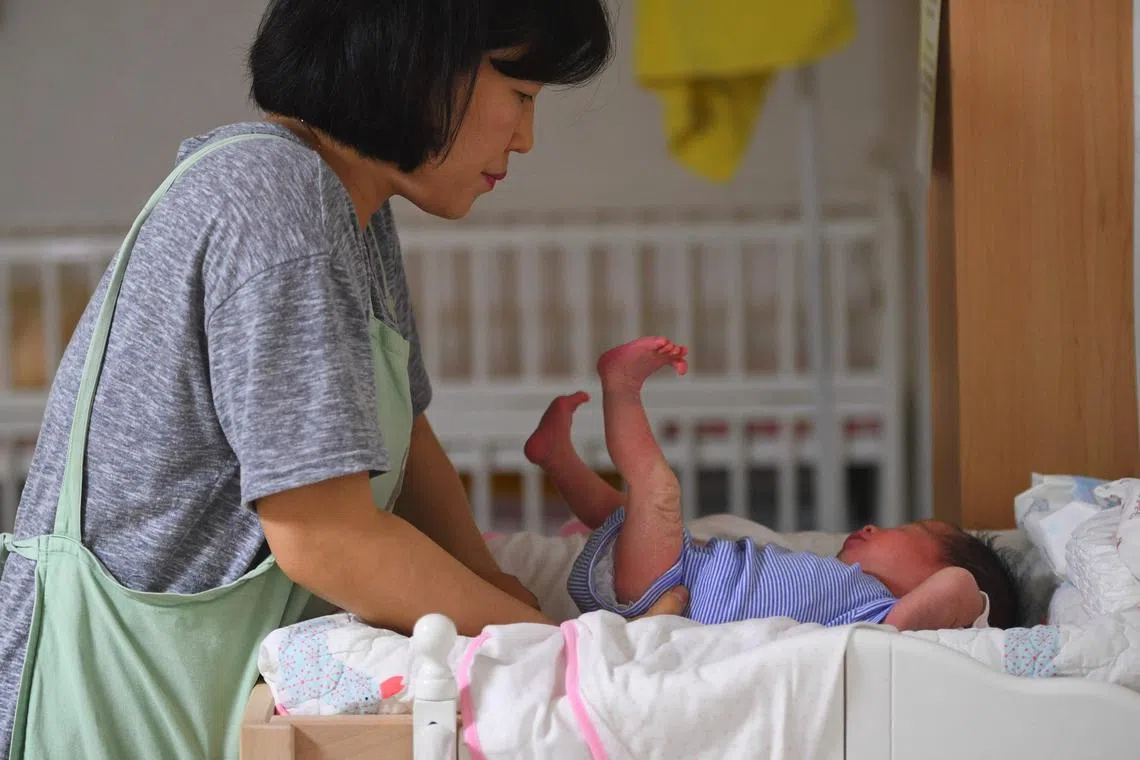Get $101k for every child born? Yes, say employees to South Korean firm’s offer
Sign up now: Get insights on Asia's fast-moving developments

There were only 250,000 South Korean babies born in 2022.
PHOTO: AFP
Would you have a child if your employer offered you $101,000 per birth?
Some 70 employees, including executives, of South Korea’s Booyoung Group have said yes to the incentive, which is targeted at battling the country’s low birth rate.
At a meeting on Feb 5 to kick off the new year, Booyoung chairman Lee Joong-keun announced the move, alongside other incentives for would-be parents.
The property and construction giant offered 100 million won (S$101,000) per child, and has paid a total of seven billion won for 70 babies born to its employees after 2021, according to The Korea Times.
“If Korea’s birth rate remains low, the country will face the crisis of extinction
“The low birth rate results from financial burdens and difficulties in balancing work and family life, so we decided to take such a drastic measure.”
In August 2023, South Korea reported that its fertility rate had dropped to a record low of 0.7 live births for every reproductive female in the second quarter of that year – a stark indicator of the deepening demographic crisis for a nation already grappling with the world’s lowest birth rate
Previous government efforts, including cash incentives and subsidised fertility treatments
A Booyoung official said that Mr Lee, who is also the president of the Republic of Korea Air Force Internet Society, has “deep concerns regarding the ongoing decline in the birth rate”, which “ directly impacts defence manpower
According to the English-language daily, to maintain current military force levels, an annual intake of 200,000 individuals is necessary. There were only 250,000 babies born in 2022.
Ms Song Jeong-hyeon, an employee at the company, said she was worried about the “financial challenges of raising a child... but thanks to Booyoung Group’s extraordinary support, I can now plan for a second child”. Ms Song gave birth to her first child on Jan 3.
The group is also hoping private businesses will be allowed to take part in an ongoing government project that offers permanent rental housing.
It has suggested providing permanent rental housing to employees with three or more children. They can choose between a childbirth incentive equivalent to the total the company gives for three births or a public housing-like rental home with no tenant tax burden or maintenance responsibilities, said Mr Lee.
He has also proposed a tax-free donation system for childbirth incentives in which the donated amount is tax-exempt, and donors enjoy tax deductions on both income and corporate taxes equivalent to the donated sum.
This is the first time a South Korean company is paying such a large sum per child to encourage its employees to have children, although other companies have policies to support staff with children.
Steelmaker Posco allows employees with children younger than nine years old to work from home for a whole day or half-day, while LG Electronics provides up to two years of parental leave and three days’ paid time off for infertility treatment, according to Korea JoongAng Daily.



